SUMMARY
This is AI generated summarization, which may have errors. For context, always refer to the full article.
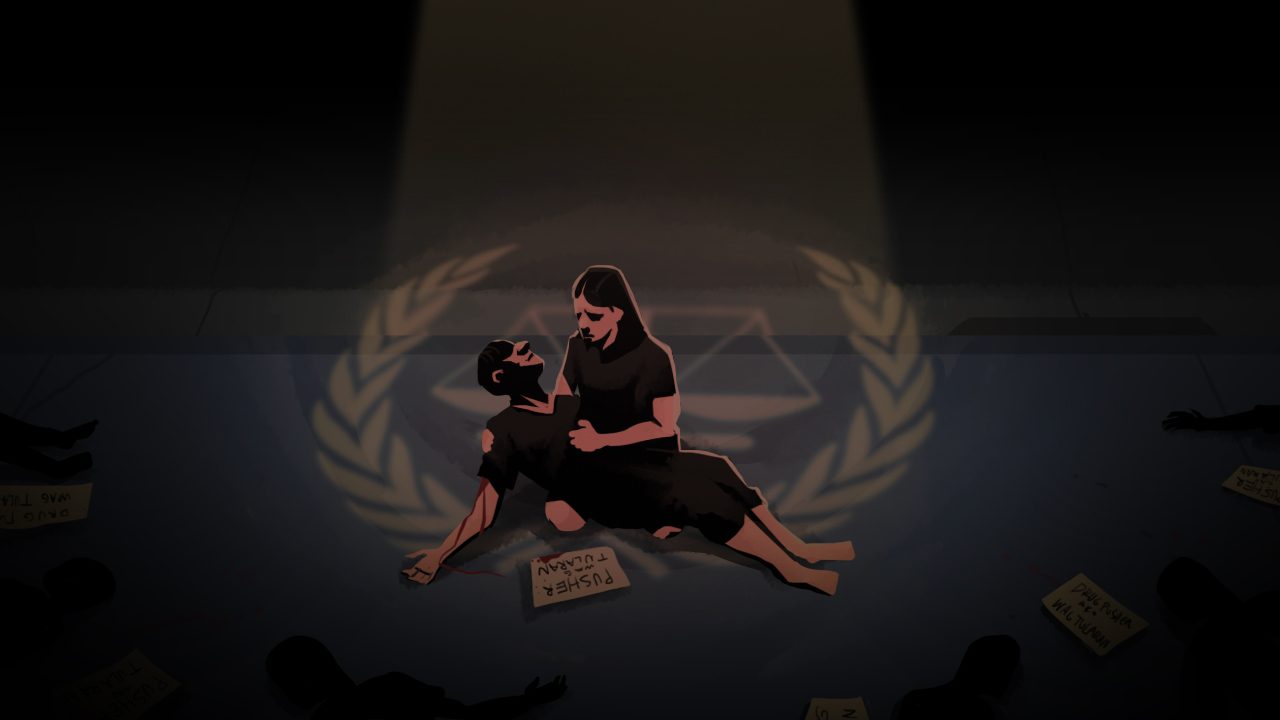
Editor’s Note: The International Criminal Court on July 18, 2023 junked the Philippine government’s appeal against the continuation of investigations into drug-war related killings and the alleged death squad incidents in Davao City under Rodrigo Duterte. This move means that the ICC Prosecutor, Karim Khan, is free to move with his office’s probe and, depending on his findings, can request warrants or summons. While the next moves remain up in the air, families of drug war victims remain optimistic that justice will be attained and that those responsible for the slaughter will be held accountable. In this series, Rappler revisits some families to discuss the importance of positive developments at the ICC amid continuing impunity in the country.
First of two parts
MANILA, Philippines – Death lingered in the shadows in the poorest of communities, waiting for the perfect opportunity to upend the lives of families.
It came mostly in the form of badge-wearing police who unleashed their ammunition on people they swore to serve and protect. It also came in the hands of bonnet-wearing men, abruptly disrupting drinking sessions with a quick gunshot to the head.
For 26-year-old Rodel*, death came knocking when he least expected it in October 2017. All he wanted to do that early morning was to buy breakfast for him and his family. But before noon, Rodel was already dead. Two gunshot wounds proved fatal: one on his chest, and another in his stomach.
Neighbors said Rodel just happened to be at the wrong place, at the wrong time. He took his usual route to the market, up the road and into a narrow alley, already thinking of what to eat, when he was reportedly intercepted by cops. They were raiding another house, one that was supposedly occupied by people involved in the illegal drug trade, and Rodel just happened to pass by.
Linda, his mother figure, knew something was wrong when the neighborhood children came running to their home. “Kinuha si Kuya Rodel (Rodel was arrested),” they yelled. She ran as fast as she could, and saw a handcuffed Rodel being led into a police mobile. That was the last time she saw him alive.
“Napatigil na lang ako kasi alam ko na ang nangyayari kapag nakialam ka eh, isasama ka,” Linda recalled to Rappler. “Matapang ako, pero kahit siguro anong tapang ko, kapag nakakakita na ako ng baril, hindi na ako ganoon katapang.”
(I just held back because I know what can happen if you intervene, they will also arrest you. I’m brave, but no matter how courageous I am, it’s a different case when you see a gun.)
Linda was told Rodel would be brought to a nearby police station. So she followed the mobile, speeding past busy side streets, careful not to lose sight of the vehicle. But it abruptly stopped and she saw the men take Rodel out and shove him into a house.
Families who lived nearby said they heard Rodel ask for mercy, for help, for any semblance of sympathy from the men accusing him of something he did not do. He yelled for his parents living far away, and for his chosen family, including Linda.
But all of these were happening far away from Linda, the woman who took him in years ago. The crowd was forming outside and she couldn’t get through. Then they all heard the unmistakable sound of five successive gunshots.
“Unang putok pa lang ng baril, lahat sila lumingon sa akin, hindi ko makakalimutan iyon,” she told Rappler. “Nag-iisip ako, bakit sila nakatingin sa aking lahat, tapos may tumakbong bata sa akin, sabi nila, ‘Ate, si Kuya Rodel.’ Doon ko na naisip na wala na siya,” Linda said.
(I will never forget that when the first gunshot rang, everyone turned to me. They were looking at me, and I was confused, and then a child ran up to me and said, “Kuya Rodel,” and that’s when I knew he was gone.)
Deaths all over
Linda described Rodel as kind, generous, and loving to the people around him. He was not a blood relative, but it didn’t matter because she treated him as her own. Linda forgot when he first came to join their home, but what she was sure of was that Rodel brought more light into their lives.
The day before he died, Linda recalled Rodel being excited about sharing some extra money he got from a gig. They were supposed to share a meal to celebrate an occasion.
But in October 2017, Rodel became one of the thousands of Filipinos slaughtered during the six-year term of the foul-mouthed Duterte, who ordered the killings from the presidential pulpit. Linda remembered coming alone to see his dead body inside the cold morgue. The embalmer pointed out the gunshot wounds, already covered by harshly-cut masking tape, like he already knew the drill.
“Sabi niya, alam mo naman, ang mga patay na dinadala rito pare-parehas lang ang istorya, nanlaban daw (The embalmer said, you know, the dead brought here by police all have the same stories, they all fought back apparently),” Linda recalled the man telling her.
There were already 3,967 individuals killed in police operations alone in the month that Rodel was slain, a little over a year into the Duterte administration. This would balloon to at least 6,252 by May 2022, or a month before Duterte left office. The death toll does not include those killed vigilante-style, which human rights groups estimate to be between 27,000 and 30,000.
It was not the only death Linda would ever experience. As months passed, more and more people in her community would be killed by government forces. Someone’s son would end up lifeless in a creek, head wrapped in packing tape. A neighbor’s husband would be shot dead inside their home, the same one where Linda had sometimes spent lazy afternoons just talking about anything under the sun.
“Tinatanong ko nga minsan na ewan ko ba kung bakit lagi na lang ako nakakakita ng mga patayan, tapos mga kakilala ko pa, nakakabuwisit na minsan talaga (I sometimes ask why I always get to see killings or dead bodies, and most of them people I personally know, it’s just so frustrating),” she said.
Linda witnessed how families ended up with more problems even after the deaths of their loved ones. She’d hear their stories about being harassed by police, or instances when men in motorcycles would circle houses that were scenes of bloody massacres days before.
Sometimes Linda would help raise funds for burial expenses, the same thing she did for Rodel whose biological family could not afford even the smallest tomb. She would call everyone she knew – from the provincial government offices to even the barangay – hoping to get any bit of financial assistance for victims. There were times when she had to haggle with funeral parlor owners to get a discount too.
But then the killings continued and harassment of families persisted with no justice in sight. Linda knew she had to do something more, so she joined a local human rights community that worked on organizing families of drug war victims, documenting their cases for future accountability measures.
“Kulang talaga kami sa karunungan tungkol sa karapatan namin kasi sa sobrang hirap ng buhay dito, mas gugustuhin mo na lang maghanap ng trabaho kasi iyon ang realidad pero hindi naman puwede iyon, kaya heto gumagawa kami ng paraan para lumaban,” she said. (We don’t know enough about our rights, and given how difficult life is here, you’d prefer to just look for a job because that’s the reality, but we can’t just let it pass, so here we are doing what we can to fight back.)
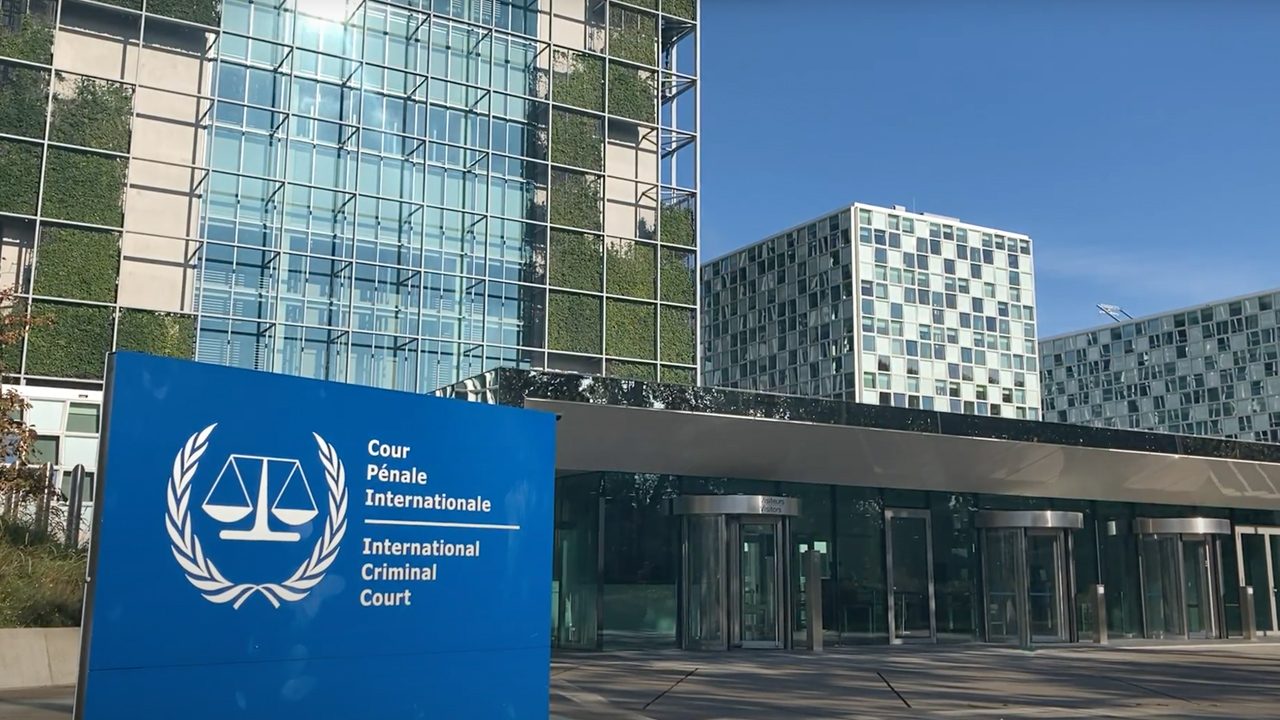
The fight at the ICC is fight for truth
When Linda started with community organizing, she wasn’t aware that it would reach the International Criminal Court (ICC). They knew of other international bodies, like the United Nations, but the ICC was unheard of.
At first, she’d help get documents for court filings. But then nothing was really happening. Some families decided to keep to themselves, afraid of any form of retaliation from police who live in their own communities. The reality of local accountability was not alluring. Only a few have been convicted in drug war-related killings, including the police involved in the deaths of 17-year-old Kian delos Santos, Carl Angelo Arnaiz, and Reynaldo “Kulot” de Guzman. Thousands of others who pulled triggers have remained unscathed.
Then came massive developments at the ICC, whose pre-trial chamber in September 2021 said that it is apparent that the killings “took place in pursuant to or in furtherance of a state policy.” Just recently, the court junked the Philippine government’s appeal to block the continued investigation into both killings in Davao City and under the nationwide drug war.
But the pace of the ICC process’ timeline is hard to determine. There are many other country-specific situations that have not moved, including the non-implementation of arrest warrants. (TIMELINE: The International Criminal Court and Duterte’s bloody war on drugs)
It is this reality that tempers the expectations of many. Leaders of human rights groups are also wary of getting the hopes of families too high, careful not to promise too much. Linda knows this all too well, but still, the ICC presents an arena where families of those left behind by drug war victims can assert their truth.
“Importante ang mga nangyayari sa ICC kasi para makita nilang totoo ang pinagdaanan namin, kasi pinipilit nila Duterte na hindi naman daw totoo ang mga patayan,” she said. “Gusto naming patunayan na totoong maraming namatay, at hindi sinungaling ang taumbayan, kundi ang mga nakaupo sa gobyerno.” Linda added.
(What’s happening at the ICC is important because they could see that what we went through is real, even if Duterte insists that the killings never happened. We want to prove to them that there were a lot of people killed, and that the government officials are the ones lying, and not citizens.)
A message for Marcos
The fight for the truth does not begin and end at the ICC. It is mostly fought in the Philippines, where the current administration continues to echo the Duterte-era false discourse against the court.
While Marcos himself openly said that the previous administration’s “focus on enforcement” resulted in “abuses by certain elements in the government,” he is still distancing himself from holding Duterte and his men accountable.
The President has said that the Philippine government “will not cooperate with [the ICC] in any way, or form,” effectively shutting down future dealings. While the Commission on Human Rights has urged the government to view this development as an “opportunity” to prove its commitment to justice, its chairperson Richard Palpal-latoc admitted that state cooperation with the ICC is “a decision to be taken by the leadership.”
Non-cooperation does not sit well with Linda and the other drug war families, especially with the continuing culture of impunity that sees police continue harassing communities.
“Karapatan naman din niya na alamin kung ano ang katotohanan, pero kung makikialam siya pero haharangin lang ang mga hakbang na dapat sa mga karapatan ng tao, manahimik na lamang siya sana,” Linda said.
(It’s his right to know the truth, but if he’s going to intervene by blocking efforts to respect our human rights, then he should just shut up.)
But asserting their rights, even if these are guaranteed by the 1987 Philippine Constitution, remains a dangerous job, especially since they will be up against police who still roam their communities, and a drug war that continues to be waged.
As of August 15, there have already been at least 384 drug-related killings, including victims killed in state operations and by unidentified perpetrators, according to monitoring by the Dahas project of the University of the Philippines-Diliman’s Third World Studies Center.
But Linda and all the other families who have decided to take on the challenge have already accepted the risks that come with calling for justice.
“Kung hindi namin gagawin na patuloy lumaban at magsasalita, kung hindi papansinin itong mga patuloy na patayan, kawawa naman ang mga tao, nabubuhay na sila sa phobia,” Linda said.
(If we don’t continue fighting and speaking out, if we ignore the rampant killings, the people would suffer, they would live in fear.) To be concluded – Rappler.com
*Names have been changed for their security
Add a comment
How does this make you feel?
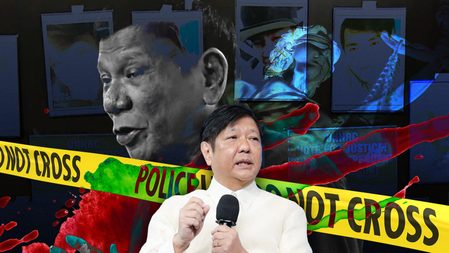
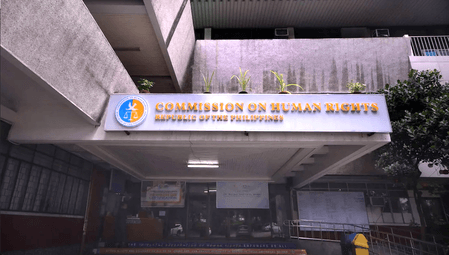


![[The Slingshot] Lito Patay’s 4 hours and 38 minutes of infamy](https://www.rappler.com/tachyon/2024/07/Lito-Patay-4-hours-infamy-July-19-2024.jpg?resize=257%2C257&crop=233px%2C0px%2C720px%2C720px)

![[The Slingshot] A Duterte and Bato cop named Patay](https://www.rappler.com/tachyon/2024/06/tl-lito-patay.jpg?resize=257%2C257&crop=322px%2C0px%2C720px%2C720px)


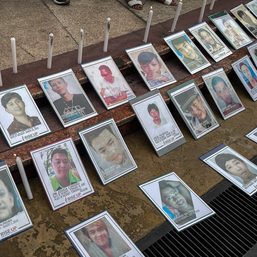
![[EDITORIAL] Sorry Arnie Teves, walang golf sa kulungan](https://www.rappler.com/tachyon/2024/03/animated-arnie-teves-arrest-carousel.jpg?resize=257%2C257&crop=310px%2C0px%2C720px%2C720px)
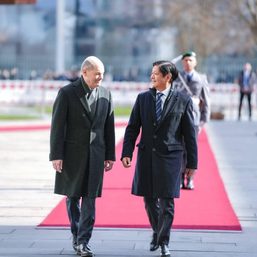


![[Vantage Point] The PDEA leaks](https://www.rappler.com/tachyon/2024/05/vantage-point-pdea-probe.jpg?resize=257%2C257&crop=255px%2C0px%2C720px%2C720px)
![[Edgewise] How Duterte can elude ICC arrest](https://www.rappler.com/tachyon/2024/05/thought-leaders-How-Duterte-elude-icc-arrest.jpg?resize=257%2C257&crop=272px%2C0px%2C720px%2C720px)







![[OPINION] Rodrigo Duterte and his ‘unconditional love’ for China](https://www.rappler.com/tachyon/2024/04/rodrigo-duterte-xi-jinping-august-2019.jpeg?resize=257%2C257&crop=91px%2C0px%2C900px%2C900px)


There are no comments yet. Add your comment to start the conversation.